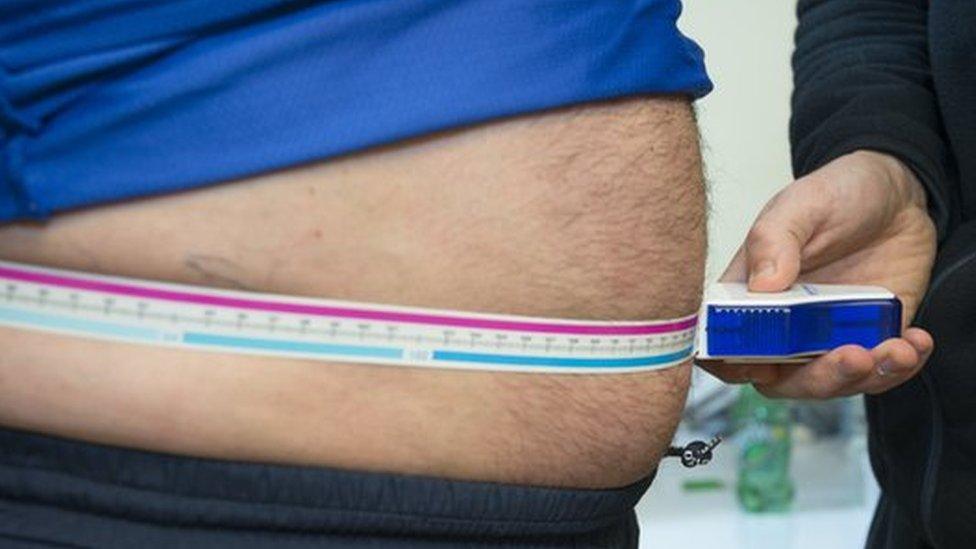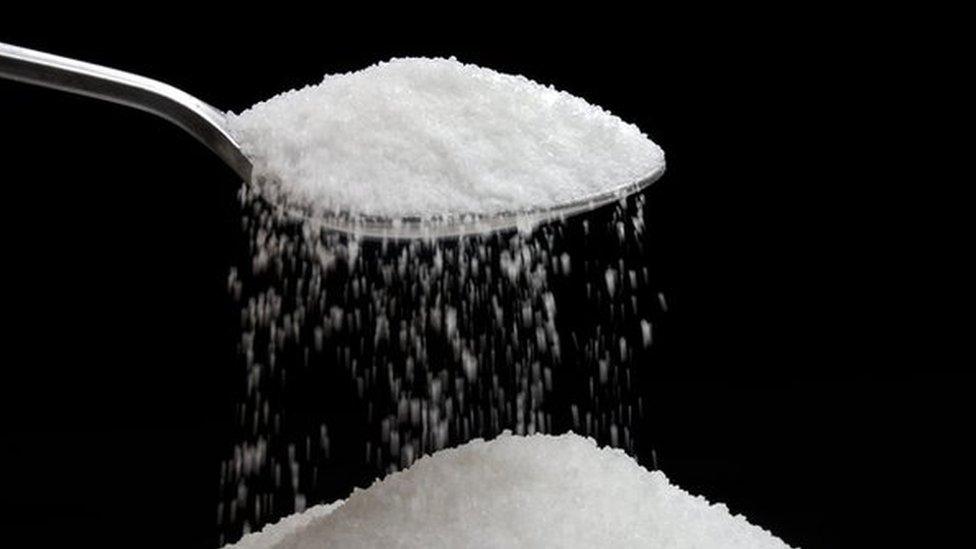Dawn of the nanny state?
- Published
- comments

Three-quarters of middle-aged men are overweight or obese
The government certainly seems to be on a mission to get people in England healthier, if the recent flurry of announcements is anything to go by.
Last week, it was supervised gym sessions for people at risk of type-2 diabetes.
The week before, Chancellor George Osborne unveiled a sugar tax, while at the start of March, there was the launch of the £3m advertising campaign One You to get people to become healthier.
And that followed the tough new guidelines on alcohol consumption which were unveiled at the start of the year.
For a Conservative government that has traditionally rallied against the so-called nanny state, it represents a remarkable change in tack.
In the early years of the coalition, there was a much more hands-off approach. The government launched its responsibility deal to try to get industry to take small steps such as reducing the sugar and fat content of foods, but apart from further crackdowns on smoking (a ban on tobacco displays in shops and the introduction of plain packaging to name just two), ministers were much quieter on the public-health front.
That, of course, has now changed. Completely. The sugar tax - to be introduced in two years' time - is really quite a radical step. It has been tried in only a handful of countries. The situation is similar for a minimum price for alcohol, which is still being actively considered here.
In the summer, ministers are expected to announce a wide-ranging childhood-obesity strategy that could see tough restrictions placed on marketing and promotion of unhealthy foods. Those two-for-one offers that prove so tempting in the cake and biscuit aisles could certainly be one victim of the crackdown.
The burden of unhealthy lifestyles in England
40%
of deaths are related to lifestyle
£11bn
spent by the NHS every year treating lifestyle-related illnesses
-
3/4 men and 2/3 women aged 45-64 are overweight or obese
-
5% of the heaviest drinkers consume 30% of all alcohol
-
8 million adults - almost one in five - smoke
So why suddenly such gusto to get us to live healthier lives? When announcing the sugar tax in the Budget, the chancellor made it clear he was doing it for the good of the nation, saying: "I am not prepared to look back at my time here in this Parliament, doing this job and say to my children's generation, 'I'm sorry - we knew there was a problem with sugary drinks. We knew it caused disease. But we ducked the difficult decisions and we did nothing.'"
Other ministers have been saying similar things. And certainly the mounting evidence on sugar has played its part in convincing them to act.
But there's also a more hard-headed calculation here. The lifestyles we lead are costing the nation and, in particular, the NHS money. Some £11bn a year, to be precise.

A sugar tax is being introduced in 2018
And cutting back on the burden is critical to the future of the health service.
Evidence suggests by 2020 there will be a black hole of £30bn. That is massive when you consider the NHS budget is currently just over £100bn.
The government has promised an extra £8.4bn this Parliament. Another £5bn is to come from increased productivity from steps such as tackling sickness absence and saving money through better procurement.
Ministers will also undoubtedly look to save on the wage bill by limiting salary increases. There is also hope money can be saved by transforming services (by which the government means keeping people out of hospital).
But that will still leave the NHS short - and this is where, it hopes, tackling unhealthy lifestyles come in.